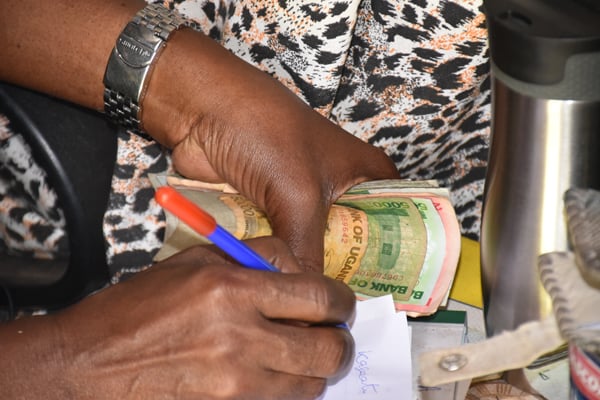39% of Ugandans outside money economy - BoU

With a substantial number of Ugandans remaining outside the money economy, according to Bank of Uganda, it will be long before Uganda acheives critical economic transformation. PHOTO | FILE
What you need to know:
- Speaking at an award ceremony ogarnised by Citibank and the Association of Microfinance Institutions of Uganda for micro entrepreneurs, Dr Atingi-Ego said recent surveys had found that at least 39 percent of Ugandans were engaged in subsistence activities, which put them outside the money economy.
At least 39 percent of Ugandans are outside the money economy, according to Bank of Uganda Deputy Governor Michael Atingi-Ego.
Speaking at an award ceremony ogarnised by Citibank and the Association of Microfinance Institutions of Uganda for micro entrepreneurs, Dr Atingi-Ego said recent surveys had found that at least 39 percent of Ugandans were engaged in subsistence activities, which put them outside the money economy.
This, he said, had made attainment of socio-economic transformation a longer journey given that much of the population remains financially excluded and dangerously vulnerable to financial shocks.
Recent studies, he added, had also indicated that during the period ended December 2019, 20.3 percent of Ugandans were under the poverty line while 51 percent of the economy was attributed to informal activities.
This, by implication excludes many or majority of Ugandans from participating in transforming the economy, which is characterised by low tax mobilisation and massive borrowing.
Mr Atingi-Ego also noted that a survey by Financial Sector Deepening Uganda (FSDU) had found that Covid-19 had deeply hurt household incomes, making it almost impossible for two out of three Ugandans to raise Shs115,000 or $30 within seven days for emergencies while an overwhelming majority had to borrow from friends and family in the early months of Covid-19 to meet household and emergency needs.
FSDU, he said, had also indicated that only 10 percent of Ugandans use banks as their primary financial service providers, while 40 percent of poor and 47 percent of middle-income earners rely on saving groups.
Therefore, Dr Atingi-Ego noted, it was important that all stakeholders in the financial sector work together to develop a financial system that meets the needs of the poor, but also enables them to cope with the vagaries of life.
“Microfinance has proved vital in promoting micro enterprises and micro-projects that can reduce poverty and foster greater inclusion. Therefore, we must all pay tribute to [stakeholders] catalysing micro entrepreneurship,” he said, noting that whereas Uganda was found to be the most entrepreneurial country in the world, the rate of business failure is high due to a litany of reasons.
Business failure in Uganda has largely been blamed on lack of access to credit, an unfavourable legal and investment environment and unrealistic tax regime.
Mr Edward Nkangi, the AMFIU board president, said whereas the micro finance sector has continued to grow, there was need to entrench continued application of deep-rooted sound practices that not only stress bottom line and profitability but focus on transforming customers.
AMFIU’s membership, he said, has grown to more than 2.68m savers and 7.75m borrowers with a loan portfolio of more than Shs1.54 trillion.
The Citi-Microentrepreneurship Awards play a vital role in economic growth and transforming the livelihoods of small holder Ugandans.
Every Ugandan should earn something
President Museveni has recently said that it was important that Ugandans still in the substance sector are brought into the money economy to drive meaning transformation.
Every Ugandan, he has previously said, must be able to earn something, if the economy is to be transformed from the currently peasantry setup.
According to Ms Sarah Arapta, the Citibank managing director, it is important to work towards improving the lives of low-income communities by investing in efforts that increase financial inclusion, catalyse job opportunities for youth and re-imagine approaches to building economically viable business.




